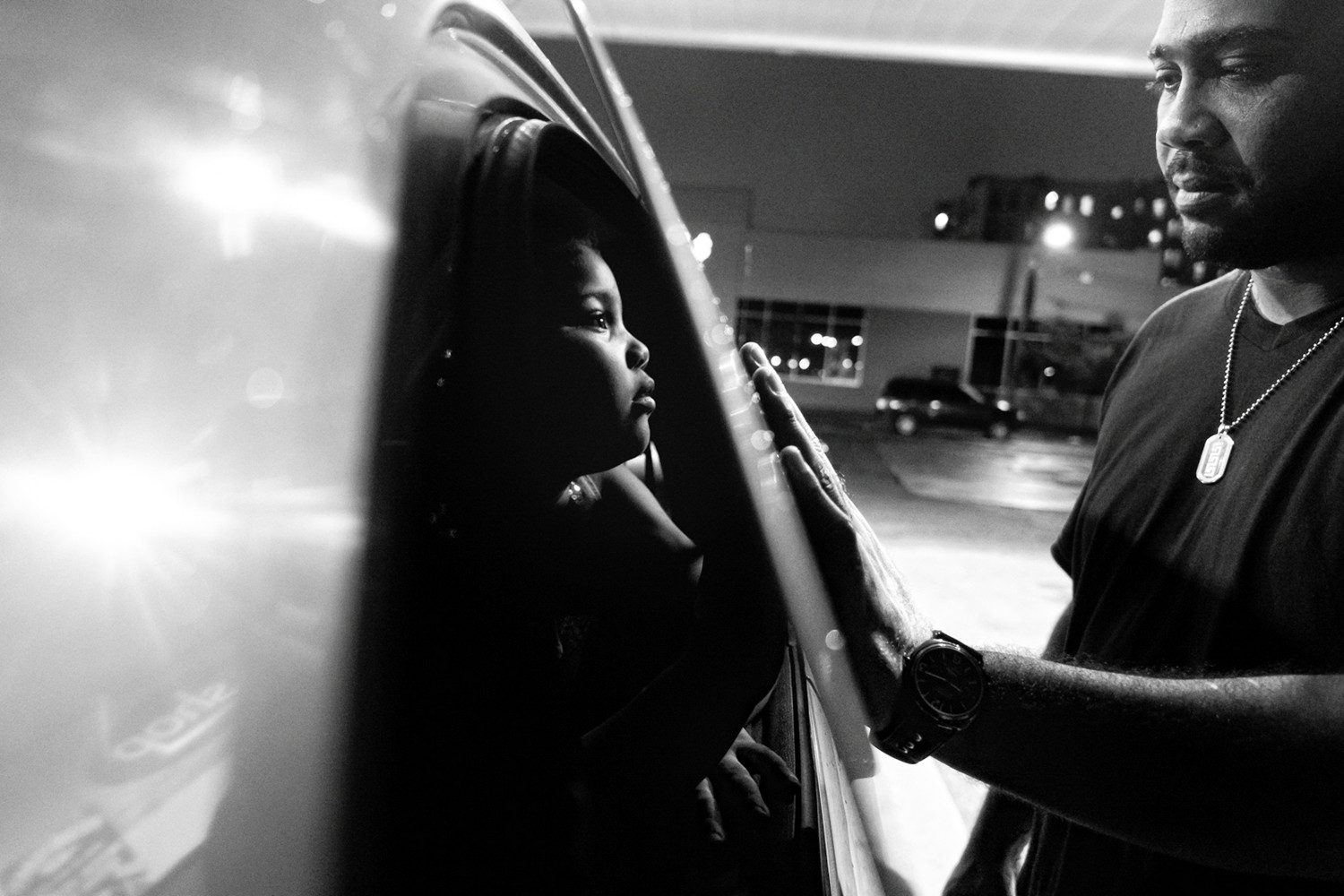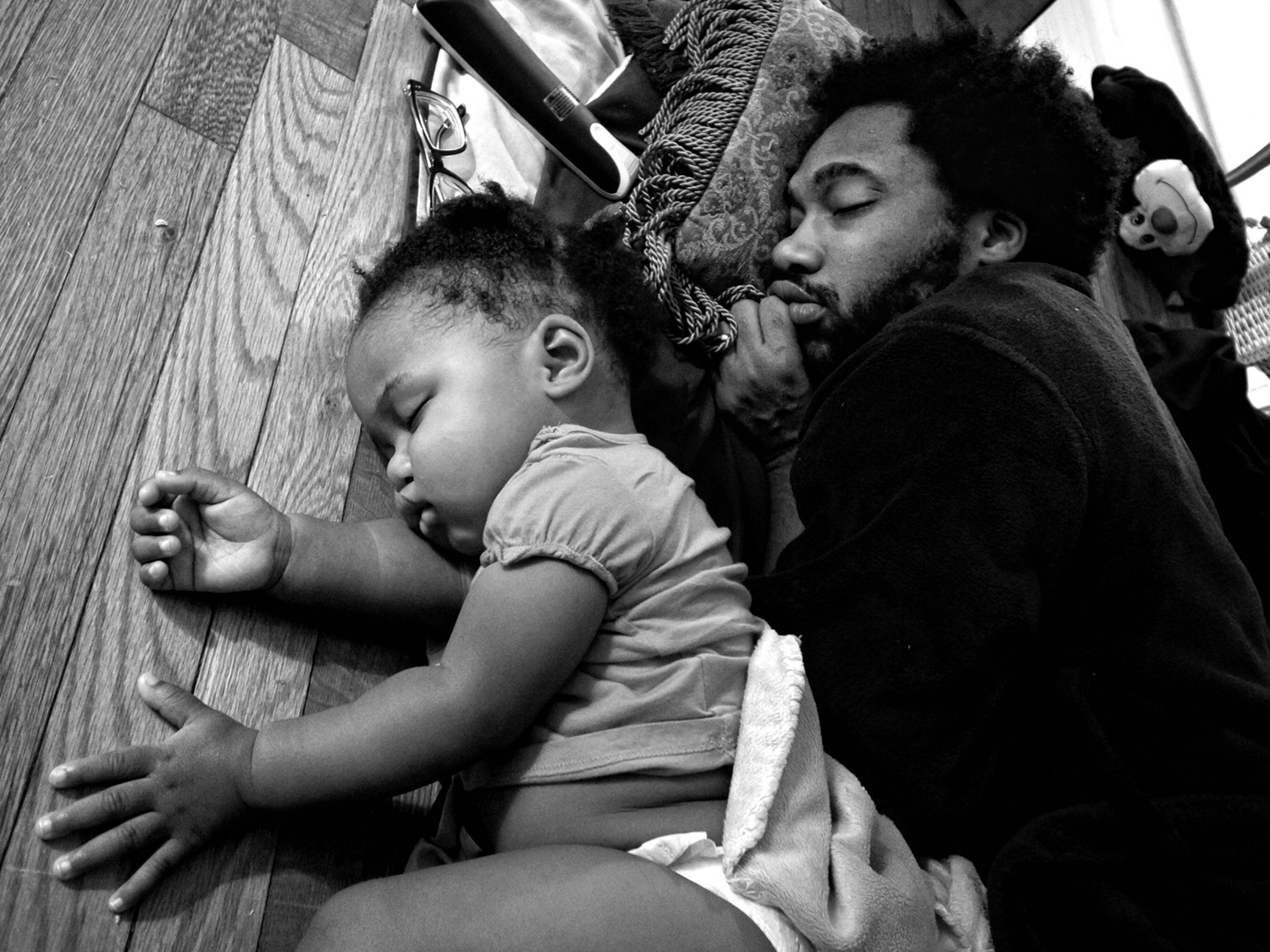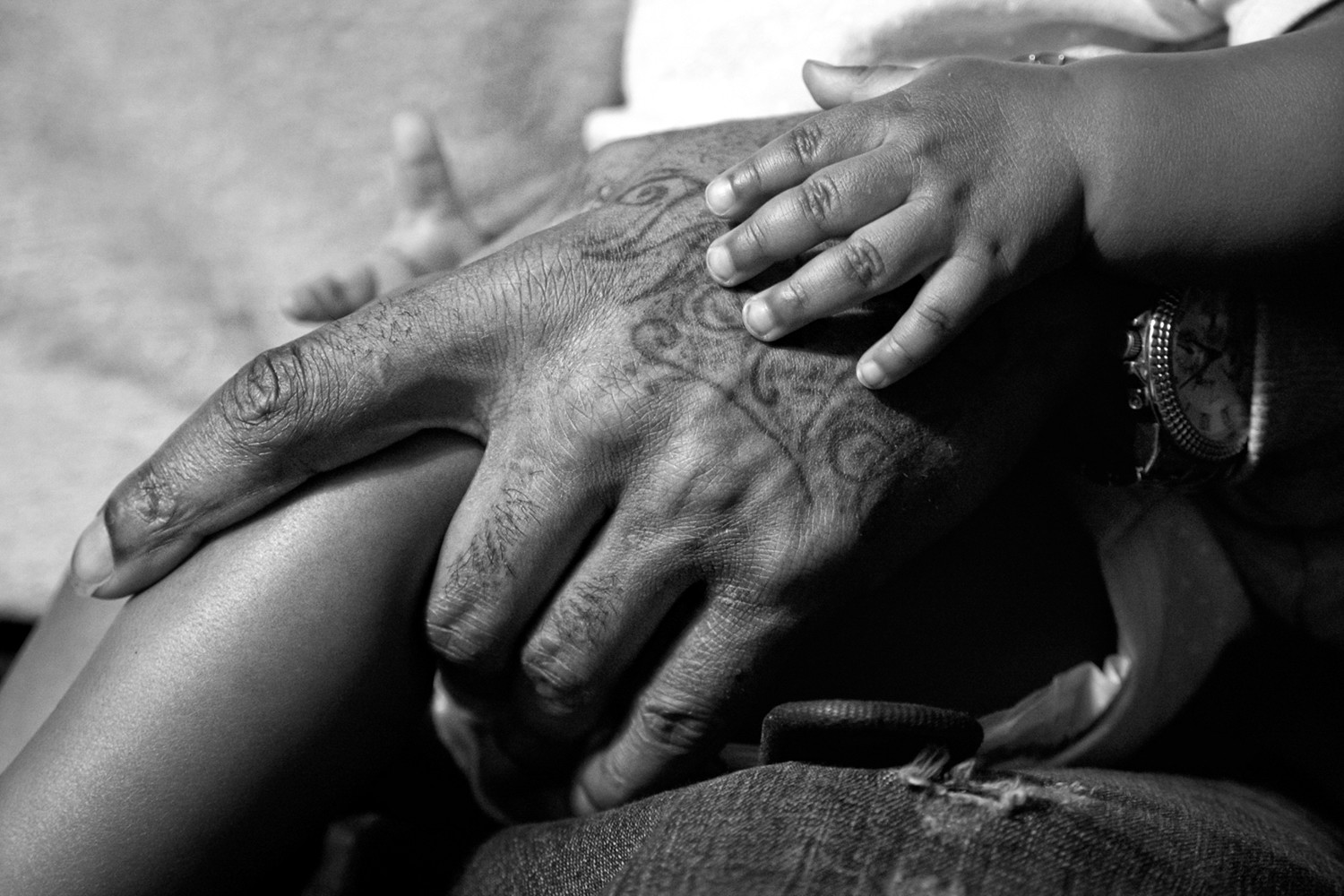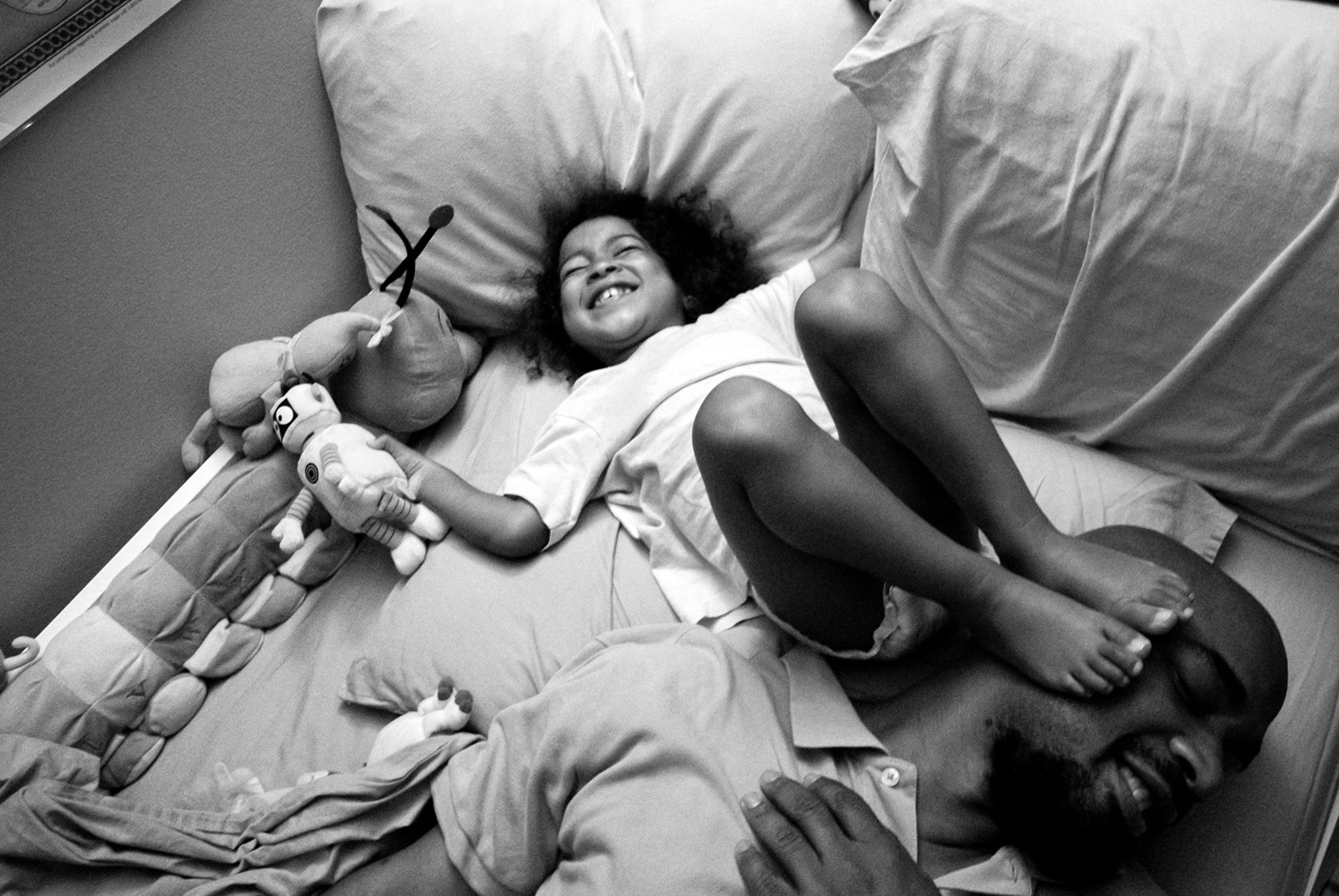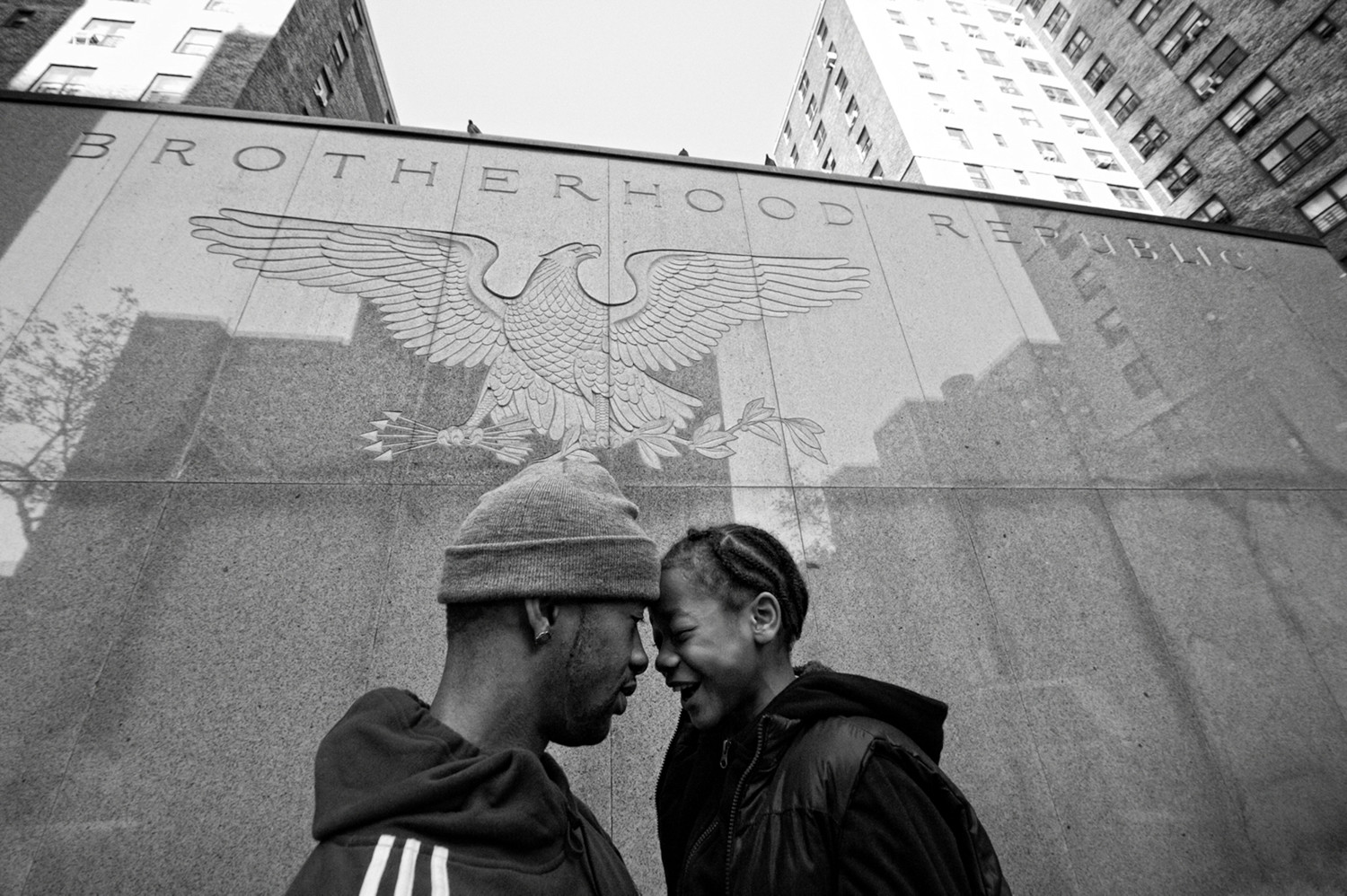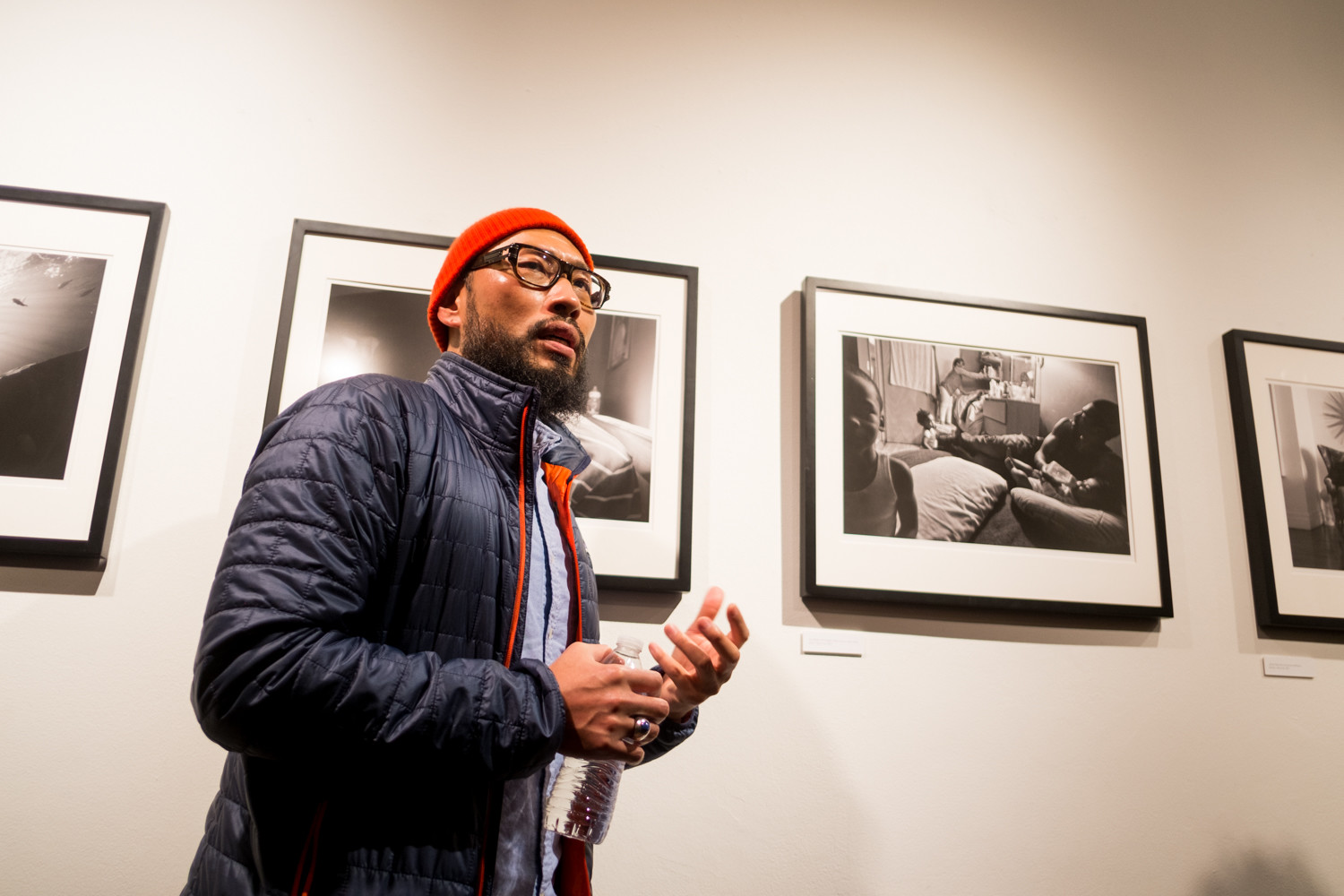Meditations on fatherhood with Zun Lee
Zun Lee’s landmark documentary photography project has finally come home.
Between 2011 and 2014, Lee photographed black fathers in the United States and Canada who, despite seemingly insurmountable financial difficulty, provide and care for their children.
The project, which became “Father Figure: Exploring Alternate Notions of Black Fatherhood,” began in the Bronx, Harlem and Washington Heights. Lee’s deeply affecting monochrome photographs eventually became a book in 2014. But for the longest time, the work wasn’t really shown in the Bronx. Now, the work is on display at the Bronx Documentary Center, a gallery in Mott Haven dedicated to documentary photography.
“It’s kind of like a homecoming,” Lee said.
The project has its roots in a photography workshop led by David Alan Harvey, a member of the historic agency Magnum Photos back in 2011. Lee had a sense of what moved him and what he wanted to explore: Tender moments between fathers and their children.
That inspiration is informed by his own life. Lee grew up in a Korean family next to an American Army base in Frankfurt, Germany. By all accounts, Lee’s father — a Korean man — was present, but that presence brought with it verbal and physical abuse.
In his formative years, Lee forged meaningful connections with black soldiers stationed at the base, and they gave him the care and guidance he was otherwise missing.
In 2004, his mother revealed a family secret that changed the course of his life. His real father was a black man who had abandoned his mother after learning she was pregnant.
This revelation upended Lee’s life, setting him on a path that culminated in his spending three years documenting the lives of black fathers and their children.
The prevailing narrative about “Father Figure” is that Lee began this project to debunk the myth of the absent black father. Yet, the truth is that the myth of the absent black father really never existed for Lee.
“My approach is to say the myth isn’t real for me,” Lee said.
While it is true that his real father abandoned his mother, Lee had father figures throughout his youth: The soldiers who gave him the care and sense of belonging he sorely needed.
“Each of these fathers reminded me of some of the soldiers I grew up with,” Lee said.
“Father Figure” is really about the fullness of the experience between father and child, as Lee puts it. Focusing on presence and absence misses the point because a present father is not necessarily a good thing, as Lee experienced in his youth. Lee’s photographs capture the experience of fathers who are present physically, mentally and emotionally in the lives of their children.
Yet, it takes a great deal of trust to gain unfettered access to someone’s life. Securing that level of trust took a wealth of time and effort. Lee estimates he spoke to 400 families before settling on the handful he ended up following. Once he found his subjects, he realized more work needed to be done.
“You have to make yourself vulnerable to them,” Lee said. “Trust is not a linear thing.”
Documentary photographers like Lee walk a delicate line. They’re emotionally invested in the lives of their subjects. But at the same time, they have to maintain a certain distance in order to observe and document what’s happening.
For the fathers in Lee’s project, the recognition of their daily, almost thankless, work was deeply affirming.
“It’s humbling every time I see my picture,” said Billy Garcia, whose image of him and his daughter at a gas station adorns the cover of Lee’s book.
Garcia attended the opening of Lee’s exhibition with his two children to raucous applause. A single parent working three jobs at the time of the project, Garcia had to both provide for his kids when he had time with them, and pay child support.
“I know my father was in my life,” Garcia said. “He taught me how to be a man.”
To Garcia, that meant being present and involved in the lives of his children in ways big and small.
“What people respond to is that these are not iconic moments,” Lee said.
His photographs are not overly dramatic. They capture the quiet, quotidian moments that make a life.
“They know what these moments mean,” Lee said, “because they live them themselves.”

